By removing obstacles, we build the future: Over 5,000 people across Moldova strengthen their socioeconomic resilience
Date:
On 25 January, an event took place marking the end of the project "Strengthening the socioeconomic resilience of women and girls affected by the Ukrainian refugee crisis in Moldova." Implemented by UN Women, the project received financial support from the Government of Japan and collaborated closely with several local implementing partners. The closing event brought together over 120 beneficiaries, partners and government representatives who played an essential role in the project, helping improve the lives of women and girls affected by the Ukrainian refugee crisis.
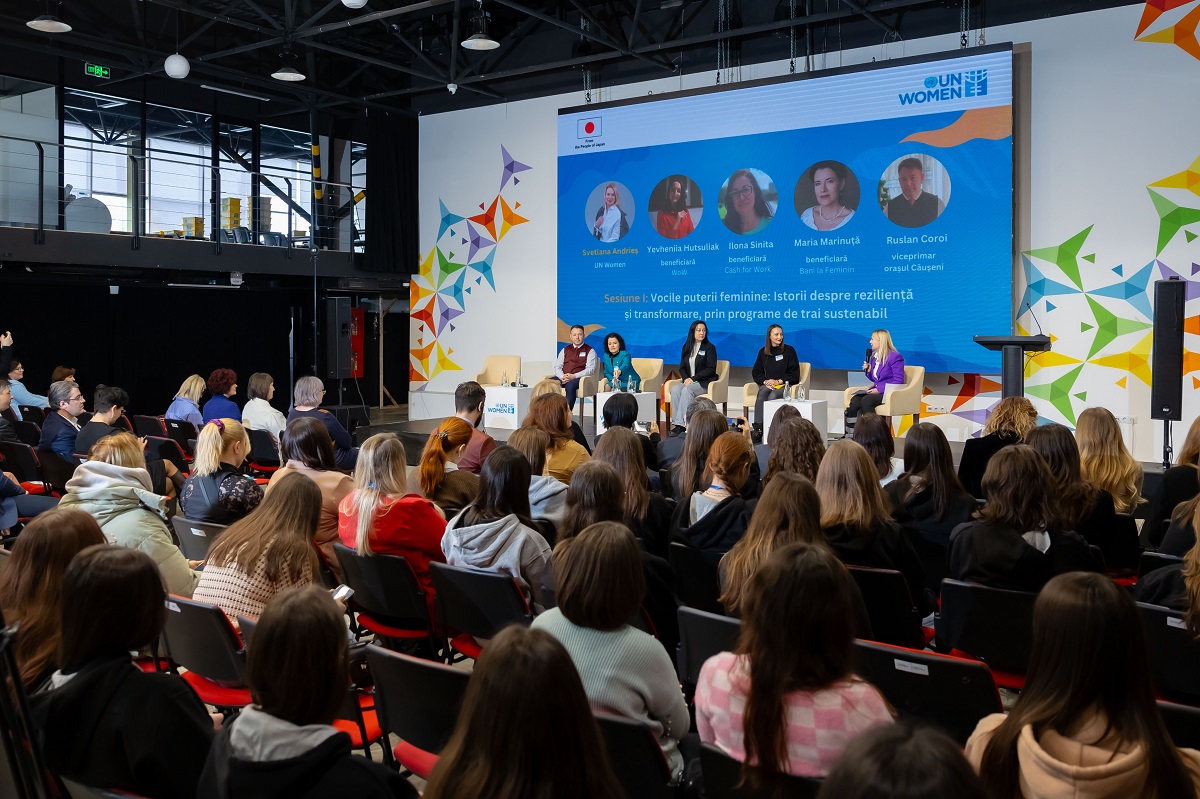
One of the project's objectives was to support the integration of refugees into Moldova’s labour market and increase their professional opportunities. Over 3,600 women and girls participated in training sessions, courses, meetings with potential employers, and personal and professional development programmes. Developed exclusively for refugees, the initiatives offered through the project included Cash for Work programmes, vouchers for children, as well as a series of activities that ensured community cohesion, such as Women in Online Work, career orientation sessions and financial education. The project also enhanced women's opportunities in entrepreneurship, with over 190 women receiving entrepreneurial training sessions, including courses, funding and access to physical business infrastructure.
Through the project, UN Women Moldova and its partner organizations also provided 569 refugee women and women from local communities, including those from underrepresented groups, with basic necessities and humanitarian services, including psychological and legal counseling, as well as cohesion activities. Over 50 specialists and representatives of institutions, organizations and local groups improved their knowledge in the field of preventing and combating violence against women. Additionally, the project supported the consolidation of norms and good practices for operating services for victims of violence against women, including refugees.
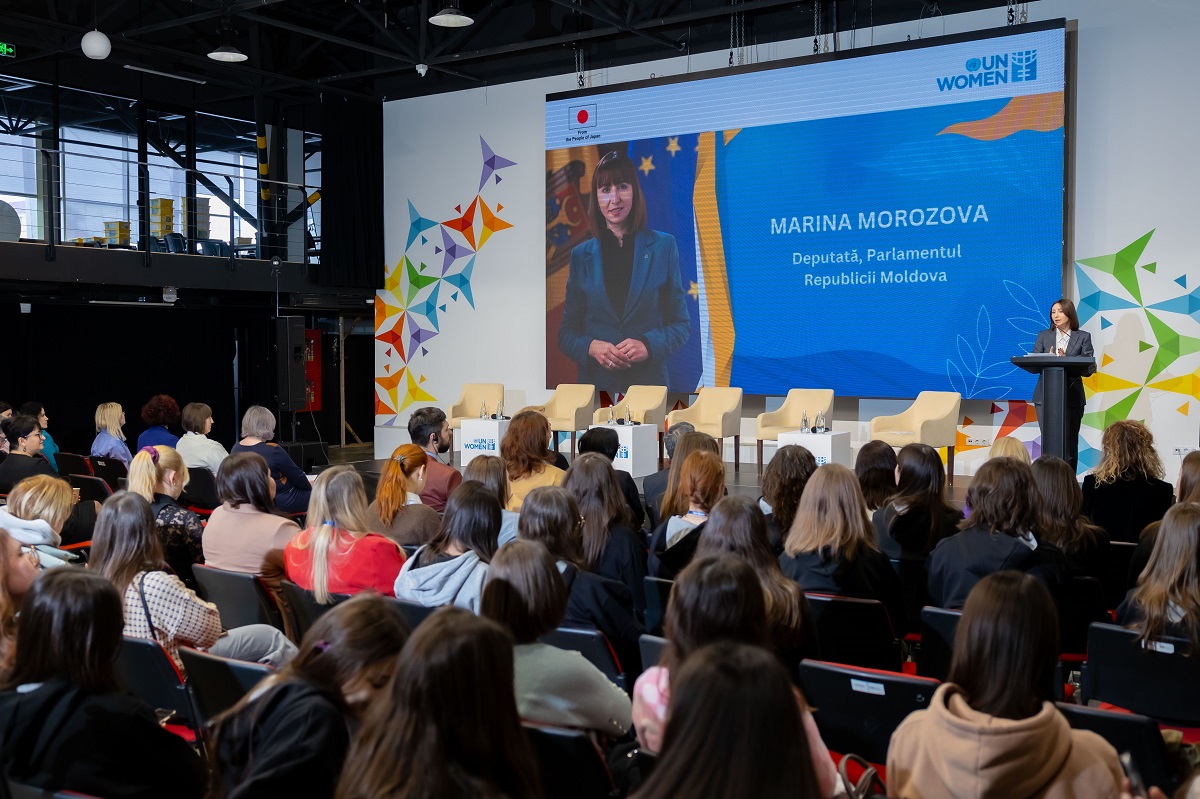
In her opening speech, Marina Morozova, a Member of the Moldovan Parliament, said that since the start of the war, the unity of all parties involved shows that it’s possible to build strong bridges and strengthen the country's economy by empowering women and girls. “Women can achieve anything,” she said. “They can do business, they can be leaders, they can participate in public life, and they can reach the most essential functions and positions in the state, as is happening in the Republic of Moldova."
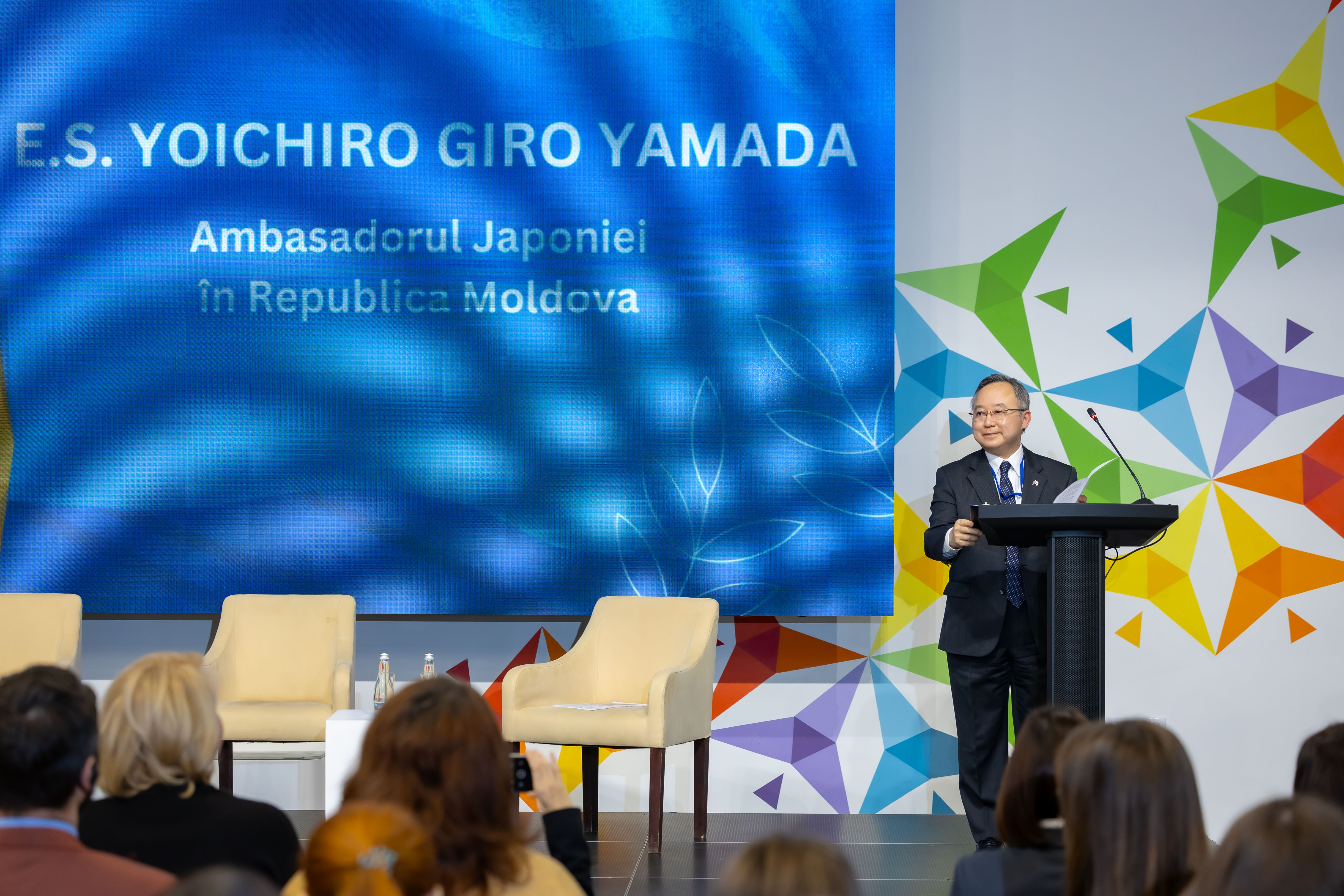
His Excellency Yoichiro Giro Yamada, Ambassador of Japan to the Republic of Moldova, said that protecting and empowering vulnerable people is the essence of the Japanese government’s philosophy in international cooperation. “We call this approach ‘human security,’” he said. “It is therefore a great pleasure to know that the projects we have supported through UN Women have been meaningful in the Republic of Moldova." His Excellency also highlighted the role of technology, stating that it can empower women and girls. “With internet and remote work, they may not need to commute to the office in a crowded big city every day,” he said. “This is especially an enabling factor for women who are pregnant or have small children to look after.”
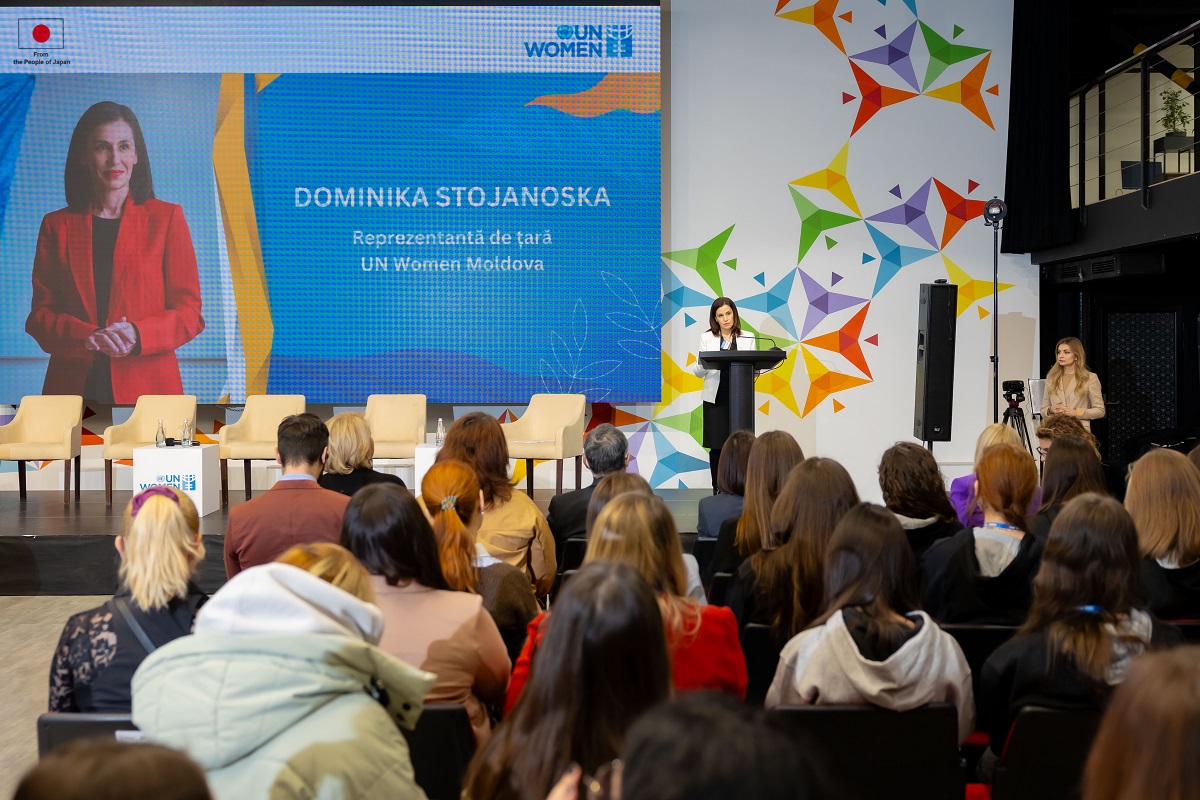
Dominika Stojanoska, UN Women Moldova’s Country Representative, emphasized the unique and complex challenges faced by women affected by the crisis. "The goal of this project was to empower women and girls across diverse backgrounds, encompassing both refugees and local women, with a specific focus on those facing increased vulnerability due to the crisis,” she said. “The overarching vision was to foster and bolster socioeconomic resilience and agency through the provision of gender-responsive humanitarian aid and customized livelihood programmes. The project aimed to not only provide immediate relief but to also lay the groundwork for sustainable empowerment."
Since engaging in the project, more than half of the participants (54 per cent) have launched or developed their own businesses, representing a significant success for women’s entrepreneurship in Moldova. This result underscores how the project has contributed to supporting them in achieving financial independence.
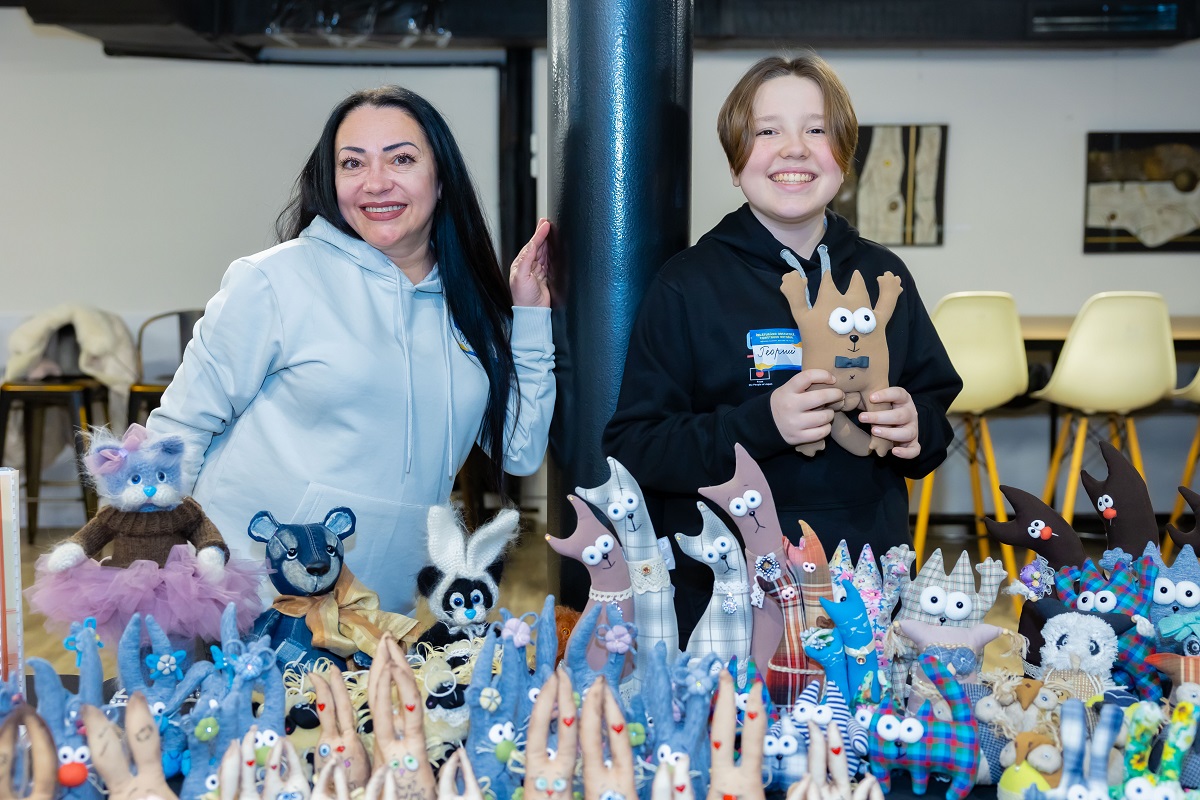
During the closing event, the participants attended discussion sessions and also explored an immersive digital exhibition on eliminating gender-based violence, as well as products made by the project’s beneficiaries.
UN Women Moldova acknowledges the generous financial support provided by the Embassy of Japan in the Republic of Moldova, which enabled the successful implementation of the project "Strengthening the socioeconomic resilience of women and girls affected by the Ukrainian refugee crisis in Moldova," as well as the essential contribution of over 25 implementing partners who have shown strong commitment to promoting gender equality.